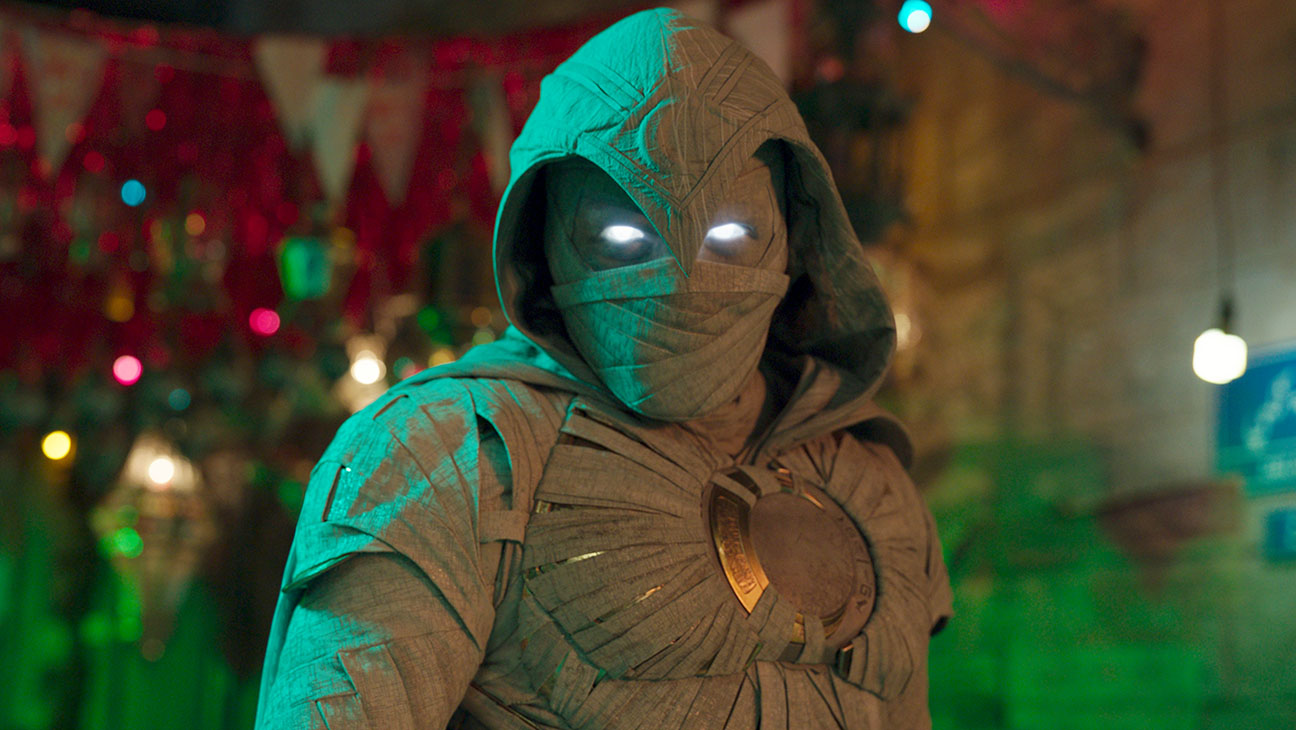My previous essays reviewed two Progressive visions of manliness. Michael Mann’s HBO series Tokyo Vice reduces contemporary Japan to racism, sexism, and homophobia. Michael Bay’s Ambulance relatedly gives us a contemporary America where ethnic minorities, strong, independent women, and gay protagonists vanquish an evil white man. Instead of boldness and greatness, we get misandry and woke tropes.
Our visual storytelling in TV and cinema, whether aiming at prestige or popularity, is increasingly concerned with denying the bewildering variety of human experience rather than learning from it. In the name of multiculturalism, our elites offer us not merely anti-culture but perhaps misanthropy, hatred of humanity. Instead of facing up to the difficulties involved in our increasingly confused freedom, instead of thinking about human nature and our transcendent concerns, we get attempts at therapy mixed with hysterical blaming of the past.
Disney is also part of this tendency. Their new Disney+ Marvel series Moon Knight offers a Progressive vision of therapy curing the evils of manliness, but with a new trick: Egyptian mythology—gods running around doing mysterious and dramatic things that sometimes seem to have cosmic importance and sometimes seem like a rather petty soap opera. Now, as for the therapy, the protagonist played by Oscar Isaac is a messed-up kid who never dealt with his childhood trauma, which resulted in multiple personalities and a kind of caricature of Freud’s notion that the psyche is made up of a moral superego, an immoral (or selfish) ego, and an amoral (or bestial) id. That’s all there is to the character, that’s the big dramatic reveal teased out hour after hour of this miniseries, as though this were some creative leap in storytelling rather than the most boring rehash of ideas that were already mediocre when midcentury liberalism fell in love with psychoanalysis and Freud, whose prestige had already waned in Europe. German academic psychology does not mix well with Egyptian religion, nor will this sort of gimmick restore its prestige, but it gives our elites yet another chance to try to sell us on therapeutic liberalism.
The most interesting thing about Moon Knight, which has a wonderful cast and must have cost a fortune, is that it reveals even better than Tokyo Vice and Ambulance how the liberal attack on manliness cripples any notion of justice and leads to nihilism rather than transcending the human condition. In Moon Knight, this rather unpromising fellow, whose multiple personalities include a tough mercenary and a sensitive archaeologist, is supposed to become a hero who saves the world in a dramatic confrontation rooted in the nature of justice and punishment and that is supposed to give Moon Knight some coherence and a claim to our interest. Of course, that’s only possible if the hero confronts his own psychic damage, but he cannot do it, since by definition it would mean rationalizing violence, the irrational, everything about manliness liberalism wants to destroy. So instead the judgment of souls after death, the journey into the underworld in the Egyptian Book of the Dead, is turned into a therapy session with an inexplicably cheery and helpful animated caricature of an Egyptian goddess! Neither the decisive character of judgment—postmortem, when it is no longer possible to do better or worse—nor the importance of character—what is judged is implicitly what makes us human—is preserved in the process. Mythology thus no longer reveals anything about the human condition, except perhaps that mankind is wishful.
As for the nature of justice and punishment: Isaac plays an avatar of the Egyptian moon god Khonsu, understood to be a god of justice because he is a defender of travelers at their most vulnerable, at night. In Moon Knight, Khonsu insists on harsh punishment of criminals, preferably death. This world is too cruel to fix, but evil can be kept at bay by decisive action. His antagonist is a goddess associated with the underworld, with death, Ammit, who looks like the terrifying animals of the Nile delta. Ammit would seem to prefer simply to judge everyone guilty and kill them all. Her avatar is played by Ethan Hawke as a cult leader offering the peace of mind that comes from abandoning humanity.
Isaac and Hawke are wonderful actors, but the roles are caricatures and the script is debased and barbaric. It is barbaric in that it treasures novelty, substituting surprise for learning, given that Egyptian gods are new to them; it’s debased inasmuch as it plays around with a philosophical tradition of the study of the soul that goes back at least to Plato but that is no longer understood or even thought to deserve serious consideration. So it’s not so strange that in the 21st century educated people would play around with fantasies about Egyptian gods, no doubt in the name of inclusive multiculturalism, if that’s what Disney is supposed to stand for these days. The American collegiate class that makes such shows or enjoys them is more barbaric than ancient Egyptians, since nowadays people think themselves above belief and in possession of a science of the soul.
Obeying recent liberal pieties, there is of course a strong, independent woman much put upon by the men in her life and very loud about her disappointment in them—they’re untrustworthy, uncaring, and really just overgrown boys, yet she is inexplicably stuck with them. This turns Moon Knight’s attempt at cosmic drama into realized parody, because so far as the characters are concerned, the men really are more interesting than the woman, so the complaints of feminism are reduced to base envy; the young actress is also no match for Isaac or Hawke, which doesn’t help matters. So far as Moon Knight itself is concerned, the feminist complaint is empty, since the protagonists are male. Either the story should have been about her, or we should have been spared the feminist lament.
This mockery of feminism, which is supposed to tell women that they count, but tacitly relegates them to the supporting cast, follows from the same source as the mockery of Egyptian gods. They are supposed to be included in Marvel multiculturalism—there’s a scene about how kids in Cairo learned their lives are being saved by a female Egyptian superhero—but only so long as the same mediocre storytelling replaces any ancient Egyptian tradition. So also, the young actress and the man who directed the series are Egyptian, but indistinguishable from any other liberal mediocrity in Hollywood. Diversity reduces to conformism.
Alas, the promise of novelty and mysterious antiquity reduces to nothing, because the only acceptable view of human things is therapeutic feminism, even or especially when the subject is as far from these contemporary prejudices as ancient Egypt is. We can look at different ways of life, but we are not allowed to see them as anything but versions of our own misguided theories. Decadent storytelling is sterile, able only to rehash old symbols rather than make new ones, and doomed to debase them by claiming that symbols are mere tricks we play on ourselves. We are clever enough to see through the pretense of symbols, but not clever enough to know ourselves. Accordingly, the goddess Ammit is a symbol of nihilism—death devours all. But the god Khonsu, who inevitably defeats her in the name of freedom of choice, and therefore would be a symbol of freedom, isn’t really different as it turns out: The apocalypse of Ammit is avoided in the plot, but Khonsu exacts a price that turns out to be our humanity. With either of the two symbols, justice is nothing but violence, and therefore no justice at all. This strikes me as the honest belief of our elite liberalism.
Thus science—psychology at least claims to be scientific, to offer knowledge of what it means to be human, not mere opinion or belief—and religion are both corrupted and reduced to a skepticism that there is any true justice, based on a dogmatic assumption that liberalism should rule the world because only liberal elites know the dark truth about human beings. The will to believe is everywhere present, yet hollow, for there is nothing worth believing in. The past can be debunked, people can be reduced to their trauma, but nothing new comes of it, no new humanity, no revitalized future.
As best I can tell, this is the confession, the self-expression of a liberalism that wishes to be creative but does not know how—mad protagonists divided against themselves as boys pretending to be men, fake feminism that protests too much, a recourse to therapy that also hates the claim of the therapist to have scientific knowledge of human beings, and a pretense of cosmopolitan knowledge of cultures that is too shallow to be worth mentioning. This is the price we pay for abandoning the connection between manliness, justice, and soul, by which our storytellers used to inquire into human nature, our divine longing, and the possibility of knowledge.

